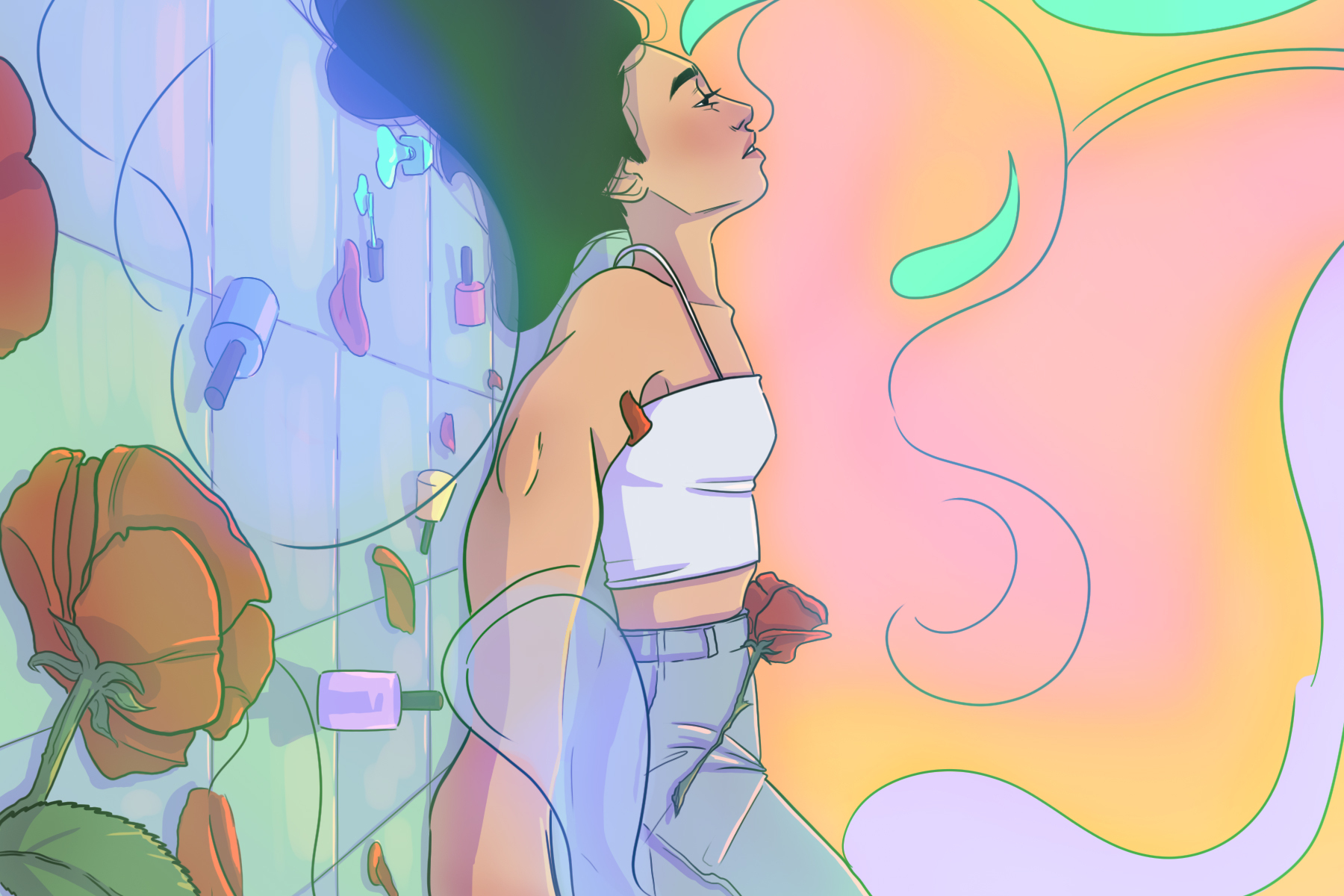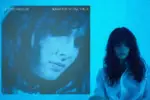One can practically smell the fresh nail lacquer and hear the scraping of the pumice stone between the soft lyrics of self-reflection on Lorde’s latest folksy single, “Stoned at the Nail Salon.” This single follows up her chart-topping hit of last month, “Solar Power,” the second single off of her upcoming third studio album of the same name.
At only 24 years old, Lorde’s career has already been quite fruitful, contributing to the high expectations put on the artist for this upcoming album. Lorde first arrived on the music scene in 2013 with her debut record, “Pure Heroine,” a unique depiction of bored teenage angst in a dark world, unimpressed with materialism and haunted by a group mind. She became the voice of an anti-pop movement the music industry didn’t know it needed. She was “kind of like a prettier Jesus” indeed — permanently transforming the tone of pop music with her massive success.
Her vision of moodiness, long-lost love and self-acceptance in 2017’s “Melodrama” further cemented her place as a songwriter for the ages with its diverse sound, vulnerably stunning lyrics and experimental drive — featuring songs that boldly switched genre mid-way through in a way that simply worked. She became the blueprint for young female artists to come. To this day, Lorde’s influence reigns in every haunting harmony sung by pop and indie artists who emerge into popularity.
The reflective quality of the lyrics in “Stoned at the Nail Salon” is similar to that of her previous work. The song begins with a blissful and visceral image of a wishbone drying on the windowsill and a faithful dog. Lorde sings of “loving this life” and appreciating such simple, earthly pleasures. But the song still reflects on the dreaded passage of time and the nature of life to change. She worries that the ephemeral beauty of the world will soon wither — no doubt a reference to climate change — singing of beautiful girls that “will fade like the roses.”
It is not just from a natural point-of-view that the song delves into impermanence, but from a personal one as well. Lorde sings of missing the days of lying in an ex-lover’s bed wearing “only her earrings,” a motif that could fit right along with any track on “Melodrama.”
She reminds listeners that one day they will “grow out of” the music they listened to at “sixteen.” Perhaps referencing the young teenage demographic that made up her fanbase early in her career, this lyric may be an appeal to her fans to grow alongside her. “Spend all the evenings you can with the people who raised you,” she sings despairingly on the track to fans only slightly younger than herself.
Music review site Pitchfork claims “Stoned at the Nail Salon” is “stuck in a pretty pedicured bubble.” But what exactly is the problem with that? The song is brimming with the existentialism fans expect from Lorde. It is delicate yet powerful in what it needs to say, filled with images that will resonate with listeners.
Some fans are angry with the song’s producer and Lorde’s longtime collaborator, the infamous Jack Antonoff. Antonoff also worked with Lorde’s contemporary Lana Del Rey on her album “Chemtrails Over the Country Club.” Listeners and Pitchfork alike could not help but note the similarities this song shared with the vibe of Del Rey’s album, particularly her song “Wild at Heart,” which is eerily similar in key, melody and chorus. The simple fact is Lorde can never be Lana and Lana can never be Lorde — making this fusion feel out of place for two very unique artists.
“Stoned at the Nail Salon” is much subtler than Lorde’s golden reemergence on her previous single, “Solar Power.” Perhaps the division over the likeability of this previous single is also propelling the tepid reception of its follow-up.
After a four-year-long hiatus, Lorde finally released “Solar Power” last month — bright, airy and dressed head to toe in sun-bleached yellow. Gone was the ecstasy-chasing, 20-year-old dwelling in the water-colored world of “Melodrama.”
This single marked a matured, nature-driven era for the artist, encouraging listeners to kick off their shoes and bow down to the prowess of the sun. Lorde was someone who had found peace and a “natural high” from simply being one with the outdoors.
But critics were not won over. The expectations of her loyal fanbase were also not satiated by this upbeat, groovier tune. Fans and critics alike were reluctant to accept this new persona after falling in love with her previous angsty, mysterious and heartbroken one. They wondered how Lorde went from singing songs with imaginings of herself “painted on the road” in “red and chrome” to smoking a celery bong on a private beach in her latest music video. Fans of her previous eras could not relate to this new image Lorde was promoting in the same way they connected with her in the past.
TikTok was particularly unkind to the artist with the introduction of this new era, many users complaining that Lorde made them wait for four years only to give them something that sounds like it belongs in a commercial for women’s razors. Others complained of an inability to “get into” the single, especially since acclimating to Lorde’s previous eras.
But others on TikTok were quick to defend Lorde, stating that just because a song is upbeat it does not mean it is bad — and that artists, like Lorde, are allowed to “grow and feel better” and thus write from a different state of mind.
https://www.instagram.com/p/CQb94zBtxif/
A similar phenomenon occurred for the indie-punk band Twenty One Pilots this year, when their album “Scaled and Icy” promoted a much happier and more upbeat narrative than their darker albums of the past. The simple fact is that some artists lose their relatability when they aren’t in a depressive state of mind. Arguably, Ariana Grande’s “thank u, next” and Beyoncé’s “Lemonade,” both produced at intensely vulnerable times in each of these artists’ careers, were two of their most powerful albums. Both of which fostered an honesty that propelled their songwriting abilities and that neither has been able to replicate since.
But no one was more critical of “Solar Power” than the online magazine Jezebel, which asked, “Is this Lorde’s natural state, or is this elaborate satire?” referring to the artificial world of influencers appropriating hippy culture and claiming to be at one with nature. Jezebel, too, lamented the lack of “nihilism” and “laidback coolness” in “Solar Power” and labeled the single as having an indescribable “off” quality to it.
The critiques of Lorde are truly scathing and the expectations on her are through the roof. But can they reach her? Luckily, the answer is: No, they can’t.
The artist herself could not be happier with her new sound and her upcoming third album. In a newsletter she wrote to fans after the release of “Solar Power,” when the excitement over the upcoming album began to swell, Lorde wrote that she was excited for fans “to meet” her new alter ego, describing her as someone who is “sexy, playful, feral and free” — a version of herself she is “completely obsessed with” and who she hopes fans will soon be obsessed with too.
“Stoned at the Nail Salon,” regardless of how it may have borrowed from Antonoff’s previous collaborations, is still a wildly underappreciated song, especially after excitement for “Solar Power” was weakened by fans’ cool reception to the bolder, sunshine-infused Lorde.
When it comes to growth and development, Lorde is handling her evolving artistic interests gracefully. Even if it means fewer fans will identify with her folksy sound, she has undertaken an admirably ambitious endeavor to “make music that sounds like the sun” and write “a surrealist/abstract take” on her home country of New Zealand, seeking to capture the unique sound of summer in her niche place in the world.
With the release of the full album on Aug. 20, hopefully critical reception will be kinder to Lorde and her new persona. Single records are not always accurate representations of the true scope of an artist’s capabilities; sometimes it is about the whole story the artist is trying to communicate. Lorde’s abilities have surely evolved — and fans should give her a chance to prove to them how, trusting her to take them on a journey of whistling cicadas and everything that is right in the world.
















